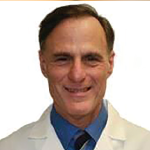Seeing the benefits of [vaccination] has been wonderful, but I’ve also seen the resistance, the reluctance, and the difficulties in access. It was driven home to me how this pandemic has affected different demographic groups extraordinarily differently. —Nina Shapiro, MD
Explore This Issue
April 2021
ENTT: What’s your biggest takeaway from this experience?
NS: I felt that the demographics I saw spoke to the inequities of the entire pandemic, let alone the issue of disparities and inequities in care and access to healthcare in general. We’re seeing this being played out in the vaccine effort. Vaccine advocacy has been a passion of mine for a long time, and I’ve been very vocal about it in books, podcasts, TV, and op-eds. Seeing the benefits of it has been wonderful, but I’ve also seen the resistance, the reluctance, and the difficulties in access. It was driven home to me how this pandemic has affected different demographic groups extraordinarily differently.
A Natural Activist
 The career of Eugene Ross, MD, speaks to this recently retired otolaryngologist’s personal determination and overall spirit of citizenship. The New York native, who graduated from and completed his residency at Mount Sinai in Manhattan, had built a thriving practice when it was cut short by a disabling spine disease that resulted in 11 herniated disks. He was compelled to retire from medicine in his mid-40s, but eight months after the surgery to fuse four vertebrae in his neck, a recovered Dr. Ross decided to pursue a law degree. He graduated from New York University Law School three years later, and was an attorney at Skadden, Arps in Manhattan for two years before recovering enough to return to medicine.
The career of Eugene Ross, MD, speaks to this recently retired otolaryngologist’s personal determination and overall spirit of citizenship. The New York native, who graduated from and completed his residency at Mount Sinai in Manhattan, had built a thriving practice when it was cut short by a disabling spine disease that resulted in 11 herniated disks. He was compelled to retire from medicine in his mid-40s, but eight months after the surgery to fuse four vertebrae in his neck, a recovered Dr. Ross decided to pursue a law degree. He graduated from New York University Law School three years later, and was an attorney at Skadden, Arps in Manhattan for two years before recovering enough to return to medicine.
Dr. Ross had been serving on the faculty of Montefiore Medical Center/University Hospital in New York City on the morning of Sept. 11, 2001. He was among the hospital staff who waited on that day for the wounded who never came. (“The one truism of 9/11 is that you either died or escaped—there was nothing in between,” he recalled.) He went down to ground zero to volunteer as a first responder and was subsequently recruited by the U.S. Army, where he served first as an otolaryngologist at West Point and then as head and neck surgery commander in Iraq from 2005 to 2006, leading the surgical team that worked on ABC News correspondent Bob Woodruff’s face and neck after the reporter suffered a traumatic brain, face, and neck injury when his vehicle hit a roadside bomb near Taji.
In 2007, Dr. Ross joined the Westchester Medical Group in New York and remained there until the March 2020 pandemic lockdown that prompted his decision to retire. In early 2021, the father of three began volunteering to administer the COVID-19 vaccine at vaccination sites in and around Middlesex County, New Jersey, where he resides with his wife.
ENTT: Looking at your history, you’ve somehow managed to be at the scene of several major events. Do you consider your COVID-19 volunteer effort an extension of a life pattern?
ER: I tell people that I’m the living Forrest Gump! Yes, I’ve had a very rich career. I’m just a natural activist, and carrying out my citizenship matters to me. I was naturally inclined to go down to Ground Zero after 9/11, I was inclined to join the army and help out, and I’m inclined to become a soldier in this COVID-19 war because this is the main event now: getting the country vaccinated before things really go downhill. There are vaccines and there are arms, and you need vaccinators to bring them together.
ENTT: Where and how often do you volunteer?
ER: I’m working for the Middlesex County Health Department in New Jersey, volunteering three or sometimes four days a week. I’ve gone to four different sites; by the end of March I will have worked at seven sites.
ENTT: Do you find it challenging?
ER: There’s no technical difficulty. If you’re a head and neck surgeon, you can certainly inject a vaccine. Speed is the only issue. I vaccinate about 40 people an hour, and the shift is about eight hours. It’s more tiring than challenging—I’m not a kid anymore! There was one day when we had about 1,000 patients come through for vaccination, and I myself saw 300 people.
ENTT: Is there any one patient who stands out in your mind?
ER: There was a very rare patient whom I turned away, a 92-year-old whose daughter brought her in for her second vaccine. Her lips had swelled a little bit with her first injection, and I could just envision her having an airway blockage after the second. Even if she didn’t die from that, at 92 she might die from the epinephrine that we would have to inject. So, I refused her and said she would need to set up an appointment in a hospital setting.